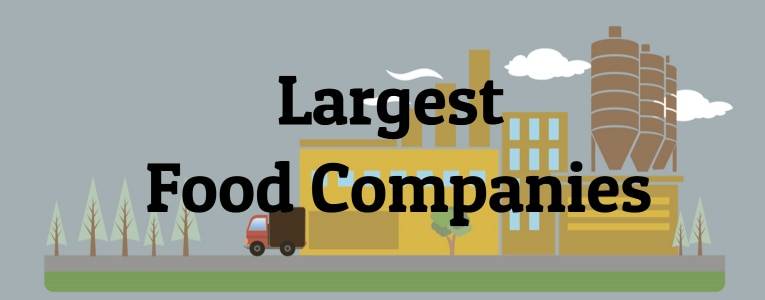An introduction to the global food industry
The global food industry is a massive and complex sector that plays a crucial role in feeding the world’s population. Within this industry, several companies have emerged as leaders due to their vast reach, extensive product portfolios, and significant market shares. This report aims to provide an overview of the world’s largest food companies, highlighting their key features, market presence, and impact on the industry.
Top 5 Largest Food Companies
- Nestlé:
- Headquarters: Vevey, Switzerland
- Revenue: Over $90 billion (2021)
- Nestlé is one of the world’s largest food and beverage companies, with a diverse product range that includes dairy products, confectionery, coffee, pet food, and more. It operates in over 180 countries and owns numerous well-known brands like KitKat, Nescafé, and Purina.
- PepsiCo:
- Headquarters: Purchase, New York, USA
- Revenue: Over $80 billion (2021)
- PepsiCo is a multinational food and beverage corporation with a strong presence in snacks, beverages, and convenience foods. Some of its popular brands include Pepsi, Lay’s, Gatorade, and Quaker.
- Unilever:
- Headquarters: Rotterdam, Netherlands, and London, UK
- Revenue: Over €50 billion (2021)
- Unilever is a consumer goods company with an extensive portfolio encompassing food, beverages, cleaning agents, and personal care products. It owns brands such as Ben & Jerry’s, Knorr, Dove, and Lipton.
- JBS S.A.:
- Headquarters: São Paulo, Brazil
- Revenue: Over $50 billion (2021)
- JBS is a global meat processing company and one of the largest in the world. It is involved in the production of beef, pork, and poultry products, supplying both domestic and international markets.
- Tyson Foods:
- Headquarters: Springdale, Arkansas, USA
- Revenue: Over $40 billion (2021)
- Tyson Foods is another major player in the global meat industry, producing a wide range of poultry, beef, and pork products. The company also offers prepared foods and value-added products.
Read: World’s Largest Food Companies
Market Trends and Challenges in the Food Industry
The largest food companies are impacted by several key trends and challenges, including:
- Health and Wellness: Consumer demand for healthier and more sustainable food options is driving companies to innovate and reformulate their products to meet these preferences.
- Sustainability: The food industry is under pressure to address environmental concerns related to sourcing, packaging, and waste management.
- Digital Transformation: Companies are leveraging technology for supply chain optimization, e-commerce, and personalized marketing strategies.
- Global Supply Chain Disruptions: The COVID-19 pandemic highlighted vulnerabilities in global supply chains, leading companies to reassess and adapt their sourcing and distribution strategies.
The world’s largest food companies play a significant role in shaping the global food industry. These companies not only drive innovation and product diversity but also face challenges related to changing consumer preferences, sustainability, and supply chain disruptions. As the industry continues to evolve, these companies will need to adapt and navigate these challenges while continuing to provide essential products to consumers worldwide.
Read: The top 100 food and beverages companies in the world
Author: Ess Seshat


